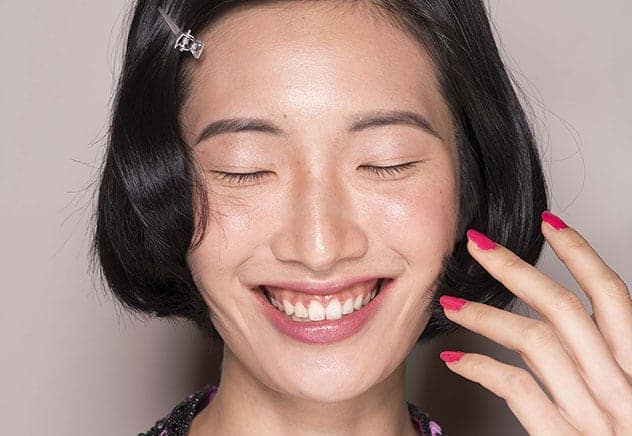It’s no easy task working out which skincare ingredients you really need to be using and which you don’t need to bother with. Because it’s no fun spending hours agonising over the labels on skincare, we’ve rounded up our five favourite skincare ingredients that are shaking up the future of beauty and revolutionising our beauty routines.
Beautiful Bacteria
Squeaky clean is the last thing you want your skin to feel like, and that’s not just because over-cleansing can sap moisture from your complexion. Beauty experts believe we’re also washing away good bacteria that’s essential for well-balanced, healthy skin. While bad bacteria can cause acne, anti-inflammatory properties of good bacteria are thought to have the opposite effect. A 2012 study published in The Journal of Cosmetic Science found that containing 5% lactobacillus (a bacteria commonly found in yoghurt) was effective at treating acne.
Fermented ingredients that have been trending in the food world for the last few years could become a prominent force in skincare if expert predictions are correct. Geoff Genesky, head of the Kiehl’s laboratory agrees that fermented foods that bolster the microbiome hold potential. “The microbiome is interesting for the skin. Our skin has its own bacteria, so a healthy balance of those little critters in our skin is an interesting area to explore. It’s definitely an area of interest for the medical and dermatological community,” he says.
Magic Magnesium
Miracle mineral magnesium plays a crucial role in a number of biochemical reactions in the body – aiding digestion, improving sleep and regulating blood pressure are just a few. It comes as no surprise that magnesium is also vital for healthy skin; according to dermatologists ensuring you’re getting the recommended daily intake of magnesium will help improve your skin’s appearance and could even fight acne by stabilising hormonal imbalances and reducing cortisol levels.
Vitamin A
A great deal of innovation will occur with ingredients we’re already using in our beauty regimens according to leading Australian dermatologist and director of Brisbane Skin, Dr Shobhan Manoharan. “We’ll see refinements of previous products. Retinol, vitamin a, is already a cornerstone of dermatology and skin health – they’re proven to remodel, tighten and reduce sun spots. The problem is that they’ve often been irritating, particularly those with sensitised skin,” Manoharan explains. “But we’re going to see more retinols coming through that are nano-encapsulated; they’ll be much better tolerated and longer lasting. They penetrate really well, and the results are better.”
Vitamin C
Vitamin C has garnered a lot of attention in the beauty world over the last few years – and for good reason. “Vitamin C is essential for collagen synthesis and also acts as a powerful antioxidant that helps to neutralise free radical damage on the skin,” explains Dr Des Fernandes, founder of Environ. And for those who after skin that really glows, vitamin C should be an essential in your routine. “It can also brighten your complexion and help even out skin tone and discolouration,” says Dr Ellen Selkon of Clinic 42. Ensuring you invest in the right type of vitamin C-based skincare is important. “Not all vitamin C is created equal,” adds Selkon. “It’s not as simple as selecting any old product with vitamin C on the label and smothering your face in it,” she adds. Both Selkon and Fernandes agree that to get the most out of vitamin C, you need to be using skin care formulated with L-ascorbic acid. “This is the form of vitamin C that the cells recognise,” says Selkon.
Next-Generation Exfoliators
While mechanical exfoliators – those scrub-like formulations made with the likes of jojoba beads and natural grains – definitely have their place in our beauty regimen, at-home peels and chemical exfoliators are essential for helping our skin regenerate itself. Alpha (glycolic, lactic) and beta hydroxy (salicylic) acids both work in a similar way to gently unglue bonds holding dead skin together. The result: dull, dead skin is sloughed away to reveal a smooth, even complexion. Incorporate into your regular skincare routine two to three times a week to get your skin really glowing.







